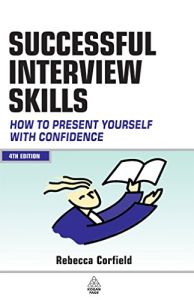Join getAbstract to access the summary!

Join getAbstract to access the summary!
Rebecca Corfield
Successful Interview Skills
How to Present Yourself with Confidence
Kogan Page, 2006
What's inside?
Make your next job interview a learning opportunity instead of the trigger for a panic attack.
Recommendation
Interviewing is a basic way of obtaining information about a topic or a person. While most people think of interviews as part of the hiring process, they are also part of other social and business interactions. So, even though you may find them stressful, you should master the basics so you can present yourself and your qualifications in the best possible light. Most of author Rebecca Corfield’s advice is useful - although occasional suggestions are out of date, such as her idea that once you get your foot in the door for an interview, you are likely to receive a job offer. getAbstract.com recommends Corfield’s step-by-step manual to new entrants into the job market, such as recent college graduates and others who are nervous about being interviewed because they don’t know what to expect. Even experienced applicants will find the book a confidence booster.
Summary
About the Author
Rebecca Corfield is a former president of the National Institute for Career Guidance in the U. K. She wrote three previous books under the name Rebecca Tee: Preparing Your Own CV, How You Can Get That Job and Managing Your Career.
















Comment on this summary